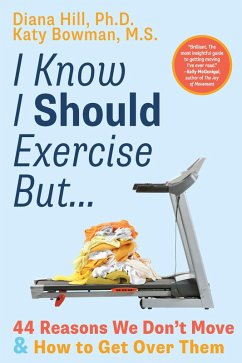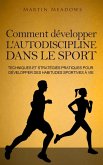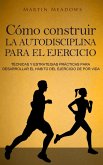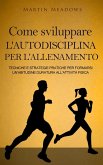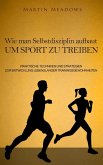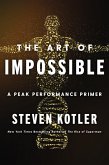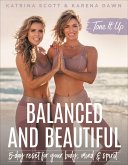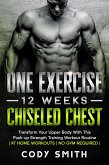An engaging guide for expanding your psychological flexibility to get your body moving more, using the powerful tools of Acceptance and Commitment Therapy (ACT)
I know I need to move my body more, but...
Sound familiar??
There are subtle, invisible, and powerful psychological barriers blocking you from getting the exercise and movement you need. Adding insult to injury, these same barriers contribute to you feeling bad or guilty when you fail to move as much as you know you should. The key to overcoming your mental obstacles is to understand the source and nature of your resistance and craft your response accordingly.
Diana Hill is a clinical psychologist, author, and host of the Wise Effort podcast. Her mission is to help her clients and readers grow the psychological flexibility skills needed to get moving in directions that matter to them. Katy Bowman is a biomechanist, author, and movement teacher who has spent a career helping people integrate more movement into their lives. In I Know I Should Exercise, But... , the two join forces to help you challenge your barriers to movement in a new way. Katy translates her understanding of the obstacles that keep people sedentaryincluding dozens of real-world examples from readers and clientsinto 44 essential impediments to movement. Diana responds to those common barriers, while introducing you to acceptance and commitment therapy (ACT), behavioral psychology and self-compassion: evidence-based-approaches for aligning actions with values.
Whether your internal barrier is born of fear, malaise, inertia, embarrassment, or difficulty managing competing priorities, you will learn how to disempower it by applying tools from behavioral neuroscience, self-compassion and the core processes of ACTincluding mindfulness, acceptance, and cognitive defusion. You'll learn to identify your resistancewhether it's an unhelpful thought, a misplaced motivation, or a contextual barrierand respond wisely and effectively. And you'll learn how thinking about movement differently can help you overcome external barriers, too. You'll also learn how to connect movement to your deepest values, by exploring such questions as:
Through simple, familiar examples, I Know I Should Exercise, But... introduces an effective method for making meaningful and lasting change. And once you've got yourself up and moving it can be applied to other areas of life as well!
I know I need to move my body more, but...
- I'm too tired...
- Work is too busy...
- I hate exercising...
- I just can't get motivated...
Sound familiar??
There are subtle, invisible, and powerful psychological barriers blocking you from getting the exercise and movement you need. Adding insult to injury, these same barriers contribute to you feeling bad or guilty when you fail to move as much as you know you should. The key to overcoming your mental obstacles is to understand the source and nature of your resistance and craft your response accordingly.
Diana Hill is a clinical psychologist, author, and host of the Wise Effort podcast. Her mission is to help her clients and readers grow the psychological flexibility skills needed to get moving in directions that matter to them. Katy Bowman is a biomechanist, author, and movement teacher who has spent a career helping people integrate more movement into their lives. In I Know I Should Exercise, But... , the two join forces to help you challenge your barriers to movement in a new way. Katy translates her understanding of the obstacles that keep people sedentaryincluding dozens of real-world examples from readers and clientsinto 44 essential impediments to movement. Diana responds to those common barriers, while introducing you to acceptance and commitment therapy (ACT), behavioral psychology and self-compassion: evidence-based-approaches for aligning actions with values.
Whether your internal barrier is born of fear, malaise, inertia, embarrassment, or difficulty managing competing priorities, you will learn how to disempower it by applying tools from behavioral neuroscience, self-compassion and the core processes of ACTincluding mindfulness, acceptance, and cognitive defusion. You'll learn to identify your resistancewhether it's an unhelpful thought, a misplaced motivation, or a contextual barrierand respond wisely and effectively. And you'll learn how thinking about movement differently can help you overcome external barriers, too. You'll also learn how to connect movement to your deepest values, by exploring such questions as:
- What about moving your body really matters to you?
- When do you feel the most vitality around movement?
- How would moving your body enhance other important parts of your life?
- How can you share your motivations for moving with those around you?
Through simple, familiar examples, I Know I Should Exercise, But... introduces an effective method for making meaningful and lasting change. And once you've got yourself up and moving it can be applied to other areas of life as well!
Dieser Download kann aus rechtlichen Gründen nur mit Rechnungsadresse in A, D ausgeliefert werden.

